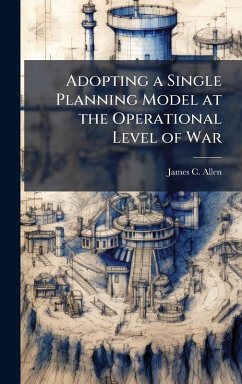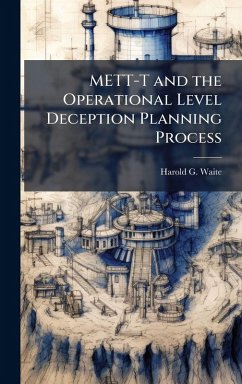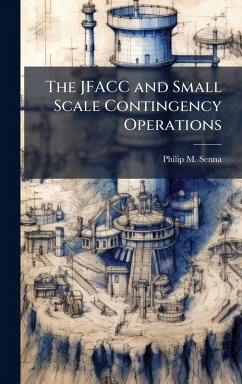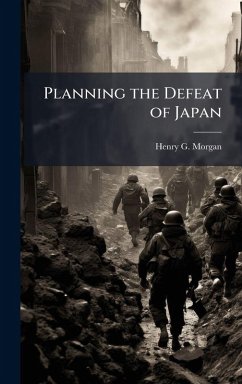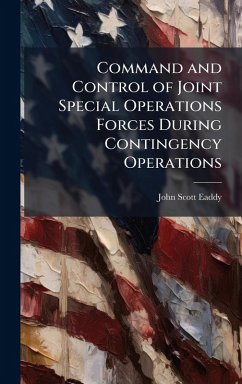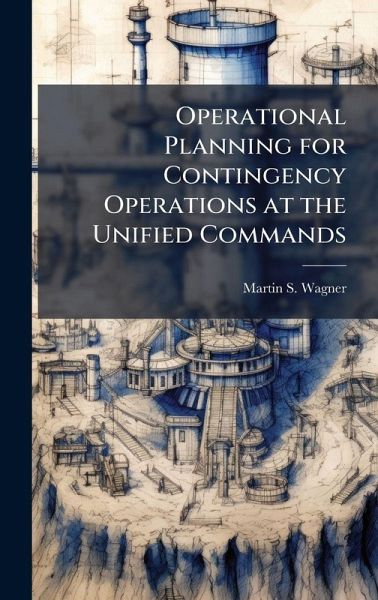
Operational Planning for Contingency Operations at the Unified Commands
Versandkostenfrei!
Versandfertig in über 4 Wochen
28,99 €
inkl. MwSt.
Weitere Ausgaben:

PAYBACK Punkte
14 °P sammeln!
This monograph addresses the question: Do the planning staffs at the Unified Combatant Commands have the personnel resources and training to conduct crisis action planning for contingencies without augmentation from other organizations? The Unified Combatant Commands are responsible for deliberate planning, Theater Engagement Planning and Crisis Action Planning, which often occur simultaneously. All of these activities plus required administrative tasks require personnel that possess the right training and education. When the Unified Combatant Command does not have the capability to conduct Cr...
This monograph addresses the question: Do the planning staffs at the Unified Combatant Commands have the personnel resources and training to conduct crisis action planning for contingencies without augmentation from other organizations? The Unified Combatant Commands are responsible for deliberate planning, Theater Engagement Planning and Crisis Action Planning, which often occur simultaneously. All of these activities plus required administrative tasks require personnel that possess the right training and education. When the Unified Combatant Command does not have the capability to conduct Crisis Action Planning it must get that expertise from elsewhere. Recent U.S. military operations have demonstrated a trend where the planning for crises is executed by an organization external to the Unified Combatant Command. This monograph focuses on the many doctrinal tasks that the Unified Combatant Commands must execute as identified in Joint Doctrine. It then discusses organization of the Unified Combatant Commands, requirements of Joint Military Professional Education, requirements for joint staff officers as established in the Goldwater-Nichols Defense Reorganization Act of 1986, and the School of Advanced Military Studies(SAMS) education process. This monograph then analyzes Operation Just Cause, Operation Desert Shield/Storm, and Operation Restore Hope to identify why external planning organizations were used. The conclusion identifies that the combination of many doctrinal tasks, organization of the command, mission of the command, training and education of the staff and statutory guidance have resulted in the inability to simultaneously conduct crisis action and deliberate planning. This monograph recommends that this problem could be improved by restructuring the service mix of the commands, requiring SAMS graduates in key planning positions, and reformation of the JPME process to include elements of the SAMS curriculum. This work has been selected by scholars as being culturally important, and is part of the knowledge base of civilization as we know it. This work was reproduced from the original artifact, and remains as true to the original work as possible. Therefore, you will see the original copyright references, library stamps (as most of these works have been housed in our most important libraries around the world), and other notations in the work. This work is in the public domain in the United States of America, and possibly other nations. Within the United States, you may freely copy and distribute this work, as no entity (individual or corporate) has a copyright on the body of the work. As a reproduction of a historical artifact, this work may contain missing or blurred pages, poor pictures, errant marks, etc. Scholars believe, and we concur, that this work is important enough to be preserved, reproduced, and made generally available to the public. We appreciate your support of the preservation process, and thank you for being an important part of keeping this knowledge alive and relevant.



